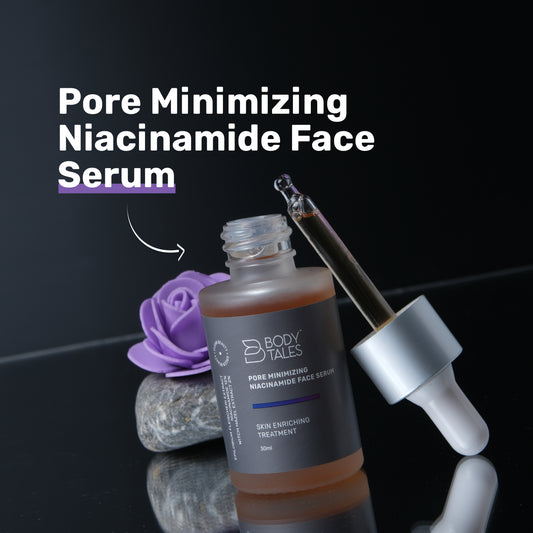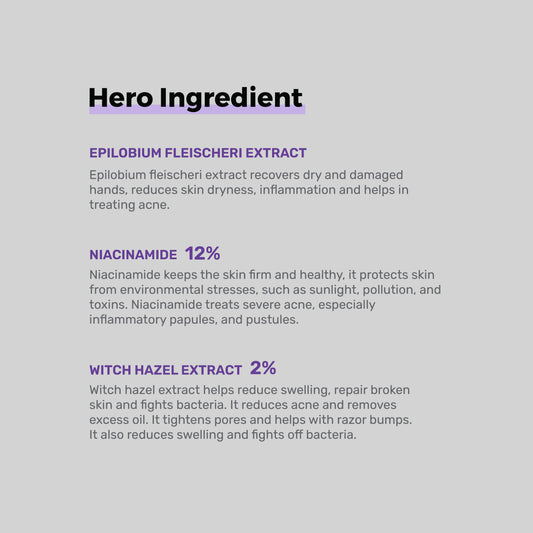Best Ingredients For Acne Scars And Dark Spots

Regardless of their name – acne, pimples, dark spots or scars – they are signs that your skin needs urgent attention. Acne, age spots, and hyperpigmentation can lead to scarring that makes our skin look uneven, dull and lifeless.
Although dime-a-dozen skin lightening products are on the market, not all are effective, and some can be downright harmful to your skin. Knowing which ones are effective and safe is essential in your battle against pimples and dark spots.
Among all the skin conditions affecting Americans, acne seems to be the most common. In fact, it affects close to 50 million Americans every year. And acne can come at any age – but 85% of it involves people among the 12 – 24-year age group. The acne treatment market’s value was $9 billion in 2020. Yet, it is expected to hit the $14 billion mark within the next ten years.


What are Acne & Pimples?
What Causes Acne & Pimples?
When puberty hits, your body goes through a ton of hormonal changes. Sometimes, these changes can make the sebum producing glands go on overdrive. When this happens, you are bound to see eruptions of pimples.
You might notice acne hits some people hard, while others seem to breeze through puberty without as much as a spot on their skin. To understand why this might happen, you need to know what causes pimples and ensuing dark spots.
- Your sebaceous or oil-producing glands are active
- Your pores are clogged with excess oil
- Dead skin cells are clogging the pores
- Hormonal changes
- Excessive scrubbing
- Heavy use of cosmetics
How do dark spots form?
Ingredients for Treatment of Acne, Pimples and Dark Spots
1. Vitamin C
Let’s start with Vitamin C – the first name that comes to mind for healthy skin. Vitamin C is a potent and highly beneficial supplement that helps depigment your skin and reduce melanin production. Packed with antioxidants, Vit C is an ingredient known to neutralise free radicals, boost collagen growth, heal skin and rebuild its structure. Using Vitamin C Cleanser or Vitamin C Serum packed with Kakadu plums and ferulic acid is known to lighten and prevent stubborn dark spots from forming.
2. Alpha-Hydroxy Acids – AHAs
AHAs are acids derived from plants or animals and are part of significant skincare products. Although there are seven significant AHA used in skincare, lactic acid and glycolic acid are the most effective ones.
- Lightening dark or discoloured spots
- Promote even-toned blemishless skin
- Boosts collagen production
- Reduces wrinkles and age lines
- Prevents the frequency of pimples and spots
AHAs are known to work on acne spots by removing clogged impurities and dead cells from pores by mildly exfoliating the skin to provide an even-toned complexion.
3. Retinoids
Retinoids are skin perfecting ingredients that work from the cellular level. Products with retinoic acid help promote cell growth, exfoliate and develop healthy skin. Retinoids help manage hyperpigmentation scars by boosting cell regeneration and work for all ages and skin types. Usually available as serums or creams, usually with benzoyl peroxide or flower acids, retinoids are known to produce newer and cleaner skin faster. Be sure to apply retinol products with caution as they might cause allergy or irritation. Take it slow, and if prone to allergies, always consult your dermatologist before trying it out.
4. Niacinamide
Niacinamide has several anti-inflammatory characteristics that help neutralise free radicals, boost skin healing and repair, and manage areas of hyperpigmentation. Niacinamide is an essential nutrient – Vitamin B3. It comes with many benefits for your skin,
- Regulates oil secretion and water retention
- Reduces the size of pores over time
- Boosts skin cell growth and offers protection against sun damage
- Balances skin pigmentation discolouration
- Helps improve the skin's natural elasticity and suppleness
5. Salicylic Acid (BHA)
Salicylic acid is a part of the BHA or the beta-hydroxy acids family known for its exfoliating nature. Salicylic acid breaks down the excess sebum or oil in your pores. The acid structure is such that it helps remove the glue that makes the skin cells stick together.
It is best to treat mild or early-stage acne breakouts such as whiteheads and blackheads. Regular usage of salicylic acid, either in serums or cleansers, will help prevent future pimples and marks.
6. Azelaic Acid
Similar to salicylic acid, azelaic acid works as an effective antioxidant and antibacterial exfoliant. Azelaic acid is found in nature – wheat and barley. Its antibacterial properties are an effective solution to clean out clogged pores and remove accumulated toxins. It helps your skin heal faster, reduces inflammation, redness and scarring.
Azelaic acid might cause a few side effects, so you must seek your dermatologist’s advice before including it in your skincare regimen. Moreover, it might take some time for Azelaic acid to work its magic, but you can be sure of visibly clean, lighter, and blemishless skin when it does.
Preventing Dark Spots, Acne and Pimples
- Always wear sunscreen, especially when going out
- STOP popping pimples. It's unhygienic and can cause infections and, worse still, scarring
- Exfoliate skin – but gently
- Keep yourself and your skin amply hydrated
- Always use gentle products that suit your specific skin type and need
- Skincare is not magic – be patient – to enjoy the results
- Never take chances - Always use reliable and safe products such as Body Tales that adhere to strict safety standards
- Acne Control Face Serum
- Acne Cleanser
Perhaps, the last point is the most important of all. Bodytales has a list of ingredients specifically designed to help deal with acne and dark spots. Products that contain niacinamide are perfect for those looking to give their skin the nourishment and depigmentation it needs.
You can also choose AHA BHA cleansers loaded with salicylic acid or pick the retinol formula for your skin. Either way, you can be sure of enjoying a smooth, blemish-free and safe skin.



